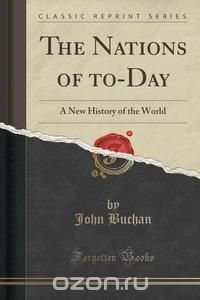Excerpt from The Nations of to-Day: A New History of the World
This series has been undertaken to provide for the ordinary citizen a popular account of the history of his own and other nations, a chronicle of those movements of the past of which the effect is not yet exhausted, and which are still potent for the peace and comfort of the present. The writers conceive history as a living thing of the most urgent consequence to the men of to-day; they regard the world around us as an organic growth dependent upon a long historic ancestry. The modern view of history - apart from the pedantry of certain specialists - is a large view, subordinating the mere vicissitudes of dynasties and parliaments to those more fateful events which are the true milestones of civilisation. Clio has become an active goddess and her eyes range far. History is, of course, like all sciences, the quest for a particular kind of truth, but that word "truth" has been given a generous interpretation. The older type of historian was apt to interest himself chiefly in the doings of kings and statesmen, the campaigns of generals and the contests of parties. These no doubt are important, but they are not the whole, and to insist upon them to the exclusion of all else is to make the past an unfeatured wilderness, where the only personalities are generals on horseback, judges in ermine and monarchs in purple. Nowadays, whatever we may lack in art, we have gained in science. The plain man has come to his own, and, as Lord Acton has put it, "The true historian must now take his meals in the kitchen."
The War brought the meaning of history home to the world. Events which befell long ago suddenly became disruptive forces to shatter a man's ease, and he realised that what had seemed only a phrase in the textbooks might be a thing to die for. The Armistice left an infinity of problems, no one of which could be settled without tracing its roots into the past. Both time and space seemed to have "closed up." Whether we like it or not, our isolation is shattered, and not the remotest nation can now draw in its skirts from its neighbours.
About the Publisher
Forgotten Books publishes hundreds of thousands of rare and classic books. Find more at www.forgottenbooks.com
This book is a reproduction of an important historical work. Forgotten Books uses state-of-the-art technology to digitally reconstruct the work, preserving the original format whilst repairing imperfections present in the aged copy. In rare cases, an imperfection in the original, such as a blemish or missing page, may be replicated in our edition. We do, however, repair the vast majority of imperfections successfully; any imperfections that remain are intentionally left to preserve the state of such historical works. Это и многое другое вы найдете в книге The Nations of to-Day (John Buchan)
